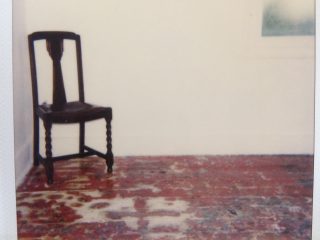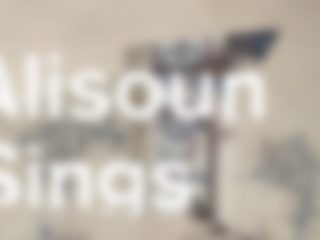Recorded Encounters in Multiple Languages | Language Keepers: Invited Local Hosts | Contributors: Artist-Activists of Languages | Editor Podcasts (2019-): Caleb Watson | Project Assistant: Harriet Cook |
Overview
The Language Station encounters and workshops were first started as a way to meet and record speakers of various languages specifically relevant to my sunrise performance Ragadawn. This has since expanded to include workshops and conversations that tap into language migration, trajectories and creative exchange.
Research into old European languages as well as languages spoken by more recently settled communities are introduced into the project through these exchanges and recordings. One phrase from my performance has been translated and recomposed into the work: Dawn Chorus of Languages.
It started in 2016 with Romanche (Geneva performance) and Punjabi (Southend performance). As of 2018 some 18 languages/translations have been integrated into the Dawn Chorus of Ragadawn with contributions from approximately 40 poets/academics/translators. A first public workshop took place in London with contributors of Galician and Ladino languages: Language Station Live, Kings College London, 2019.
The work is ongoing and responsive to situations and invitations.
Sound excerpt
2016
Photos
Photo credit: various contributors
“I found the whole experience with Language Stations to be a creative and nurturing one, in particular because Rhys Trimble and myself were placed in a workshop at Liverpool with very interesting poets from Yemen. Their outlook on speaking a worldwide ancient language had been thrown upside down when immersed in the English language and culture in their new city. For us, Welsh speakers, being a minority language, that was no surprise, as looking outwards of Britain has been one of the ways that we still exist.”
Karen Owens – Poet
Background
Dawn Chorus of Languages
At the heart of the linguistic aspect of Ragadawn is the process of revitalizing connections between poetic forms as well as minority or migratory languages active in Europe: anciently rooted languages, as well those present through more recent settlements.
It follows a symbolic map of some of the languages involved in early medieval lyric poetry across pre-European territories. One phrase from my performance has been translated and recomposed into the work, thus slowly compiling a multilingual refrain at the heart of the work.
2016-2018:
Punjabi – Southend | Romanche – Geneva | Arabic – Paris | Berber – Paris | Farsi – Copenhagen | Andalus-Arabic – Library | Medieval Hebrew – Library | Galician – Santiago de Compostela | Ladino – London | Provençal – Aix en Provence | Occitan – Toulouse | Sicilian – London | Anglo-Saxon – London | Welsh – Liverpool | Scottish Gaelic – Skye | Icelandic – Manchester | Groendlandic – Copenhagen | Nightingale – Stodmarsh |
From 2019, new encounters and languages were recorded and edited by C Bergvall & Caleb Watson and recomposed towards performance by composer Rebecca Horrox.
2022- ongoing
The trajectory of languages has been recomposed by Jamie Hamilton for the nocturnal performance Notttsong and features online as an electronic artwork commissioned by Rivers Institute New Orleans.
Original Text
c.bergvall, 2016
passengers we are passages we are passengers we are passages we are passengers
Passengers Passages
2022
Algorhithmic work commissioned by Rivers Institute, New Orleans. With thanks to Andrea Andersson. Created with John Cayley and orange.
Access here: https://riversinstitute.org/publications/caroline-bergvall




